
Back to selection

Supplier
BlackSky
BlackSky Global, Inc.
1505 Westlake Ave N #600
Seattle, WA 98109
USA
BlackSky is a leading provider of real-time geospatial intelligence and monitors activities and facilities worldwide by harnessing the world’s emerging sensor networks, using its own satellite constellation. The company, based in Seattle, USA, processes millions of observations from space, air, environmental sensors, asset tracking sensors, Industrial IoT, and Internet-enabled narrative sources.
BlackSky’s on-demand constellation of satellites can image a location multiple times throughout the day. The company monitors for pattern-of-life anomalies to produce alerts and enhance situational awareness. BlackSky’s global monitoring is available via a simple subscription and requires no IT infrastructure or setup.


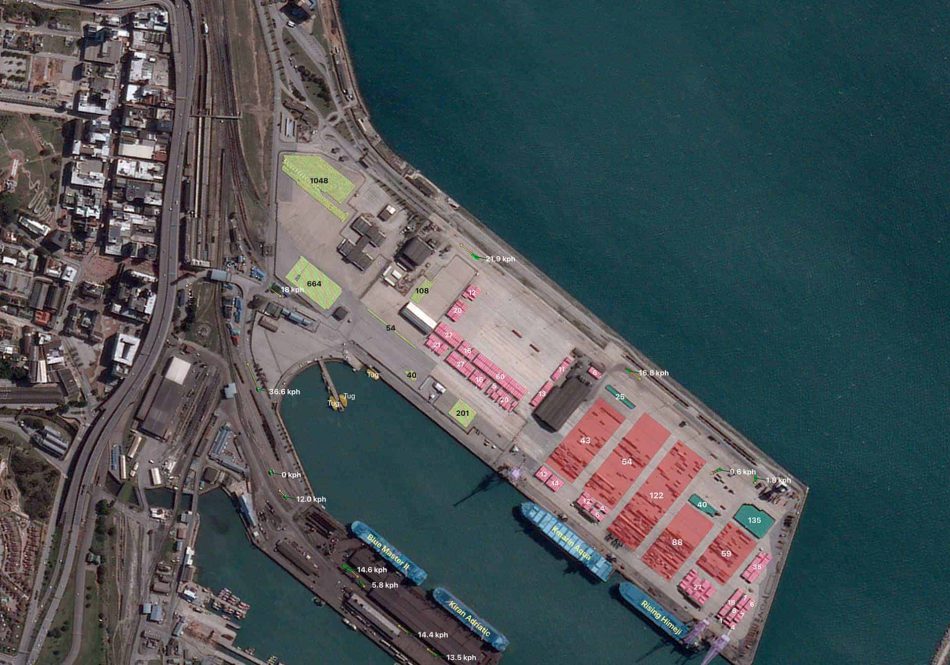
The company is aiming for a 60-satellite constellation, which would offer 1m resolution and rapid satellite revisit rates. The satellite constellation is currently being built by SmallSat manufacturer LeoStella, LLC, a joint venture between Spaceflight Industries and Thales Alenia Space.
BlackSky is a wholly owned subsidiary of Spaceflight Industries, Inc. and is based in Seattle, WA, USA. The company was founded in 2013 and plans to launch a constellation of 60 Earth observation satellites to enable revisit times of a few hours or less. The company raised capital to fully fund its first six spacecraft, which two of them, Pathfinder-1 and Pathfinder-2, were scheduled for launch in 2016. Pathfinder-1 was launched on a multi-satellite launch on ISRO’s PSLV rocket on 26 September 2016.
Pathfinder-2 was planned for a launch in 2017 on a Falcon 9 launcher operated by SpaceX. As the first satellite reached all goals, it was decided not to launch the second satellite and continue with the operational satellites.
BlackSky satellites are designed for a three-year mission life at a fairly low altitude of 450 km. The spacecraft will include propulsion systems to reach this service life at such an orbit. The satellites are designed with pre-planned obsolescence in mind, as the lifespan of each spacecraft offers enough time to provide services and then rapidly refresh with new technology.
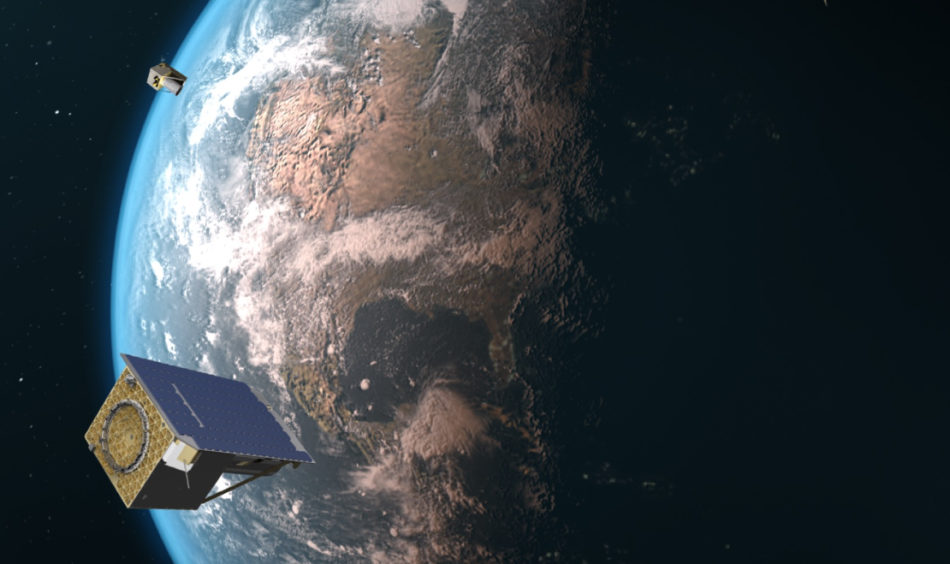
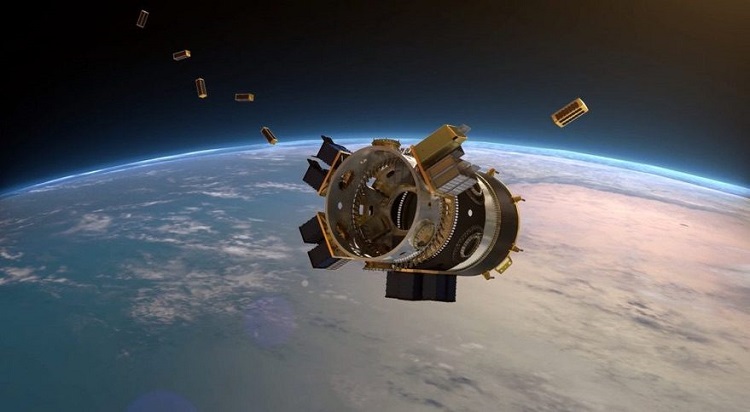
Company History
BlackSky started out in 2013 as a subsidiary of Spaceflight Industries as its geospatial intelligence service, to offer on-demand images from a constellation of satellites. Their first satellite, BlackSky Pathfinder-1, was launched on September 26th 2016 by launch operator ISRO from India. The first pictures were released publicly on November 14th 2016.
In June 2015, BlackSky started a partnership with commercial imagery intelligence provider AllSource Analysis, based in Longmont, Colorado USA. BlackSky would provide high-resolution, rapid-revisit, cost-effective satellite imaging data to AllSource for incorporation into its multisource analytics capabilities and product development. The partnership would support a variety of analyses across multiple industries such as agriculture, forestry, civil government, non-governmental organizations, defense, finance, engineering, energy and others. Governments and organizations can leverage the combined imagery and analytics capabilities to monitor the worldwide economy, environment and trends to gain valuable business insights and intelligence.
In May 2016, BlackSky established an official partnership with UNITAR (United Nations Institute for Training and Research). UNITAR, created in 1965, is an autonomous body within the United Nations that was formed to develop capacities to enhance global decision-making and support country-level action for shaping a better future.
On December 2nd 2018, BlackSky launched their Global-2 satellite with the SSO-A mission on a Falcon 9 rocket operated by SpaceX, using the SHERPA satellite dispenser.
On June 29th BlackSky Global-3, and on August 19th 2019 BlackSky Global-4, satellites were launched on an Electron rocket operated by Rocket Lab from New Zealand.
In January 2020, BlackSky received a contract from the US Army to prototype satellites with 50cm resolution. In September 2020, they unveiled their third generation of satellites, scheduled to launch in 2022, that would provide 50cm resolution imagery. They also announced that 16 of the 2nd generation satellites would be launched before phasing in the third-generation units.
BlackSky Global-5 and Global-6 were launched on August 7th 2020 on a SpaceX Falcon 9 rocket as part of the Spaceflight, Inc. SXRS-1 rideshare (secondary payload) mission.
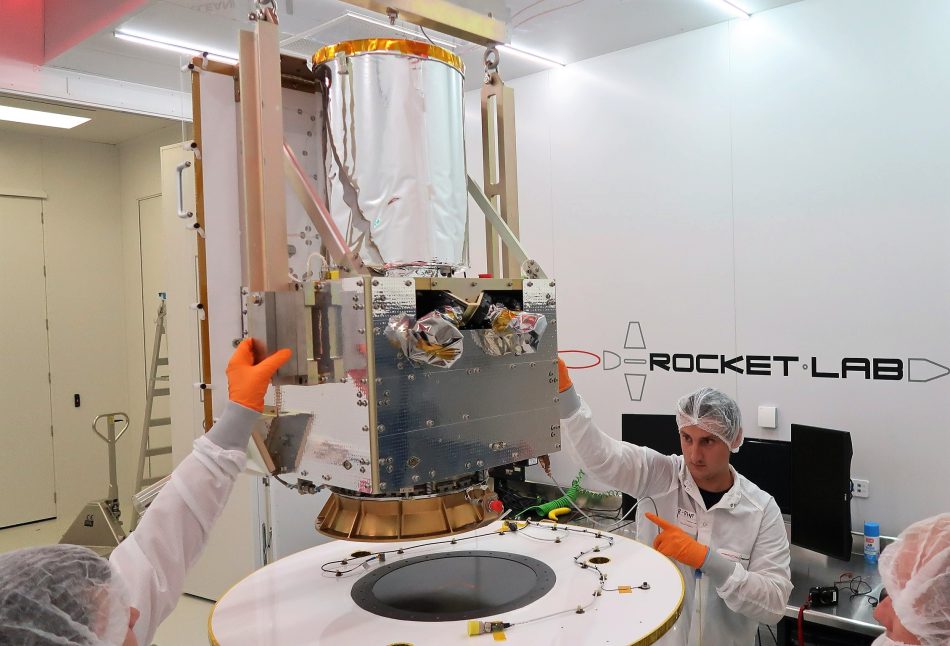
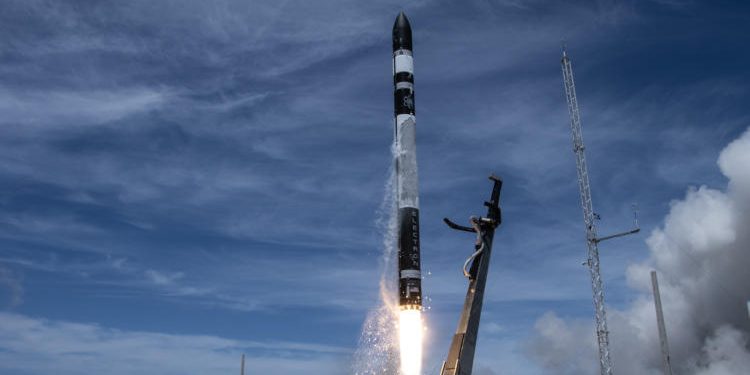

BlackSky Global-7 was launched March 22nd 2021 on an Electron Photon rocket operated by Rocket Lab but two more on an Electron KS on May 15th 2021 failed.
In September 2021 BlackSky merged with special purpose acquisition company (SPAC) Osprey Technology Acquisitions, Inc. to take BlackSky public. The combined company was renamed BlackSky Technology, Inc. BlackSky raised about 450 million USD in cash proceeds through the deal, including 180 million USD in a Private Investment in Public Equity (PIPE) round with investors including Tiger Global, Mithril Capital (the investment firm of Ajay Royan and Peter Thiel), Hedosophia (the venture fund of UK investor Ian Osborne), and Senator Investment Group. The company will use the funds to further progress toward its goal of a network of 30 imaging satellites.
On November 17th 2021 Rocket Lab’s Electron rocket placed another two BlackSky imaging satellites into orbit. The mission, called ‘Love At First Insight’, lifted off from Rocket Lab’s Launch Complex 1 on Mahia Peninsula, New Zealand. Two BlackSky Gen-2 satellites (Global-10 and -11) were orbited at an altitude of 430km (280miles).
On December 3rd 2021 BlackSky launched another two optical Earth observation satellites, Global-12 and -13 as rideshare payloads on the SpaceX Starlink Group 4-3 mission. The rideshare mission marked the second time BlackSky satellites have hitched a ride into orbit on a SpaceX Starlink launch.
On December 9th, 2021 Rocket Lab launched another pair of BlackSky satellites (Global-14 and -15), on their Electron launcher. The mission, called ‘A-Data-With-Destiny’, was the sixth and final Electron launch of 2021.
On February 14th, 2022 launch operator Rocket Lab launched two BlackSky satellites with their Electron rocket.
| Satellite | Mission | Launch Date | Launcher | Launch Operator |
| Pathfinder-1 | SCATSAT-1 | 26-Sept-16 | PSLV | ISRO India |
| Pathfinder-2 | not launched | |||
| Global-1 | PSLV-C43/HysIS | 29-Nov-18 | PSLV | ISRO India |
| Global-2 | SSO-A | 02-Dec-18 | Falcon 9 | SpaceX USA |
| Global-3 | Make-it-Rain | 29-June-19 | Electron | Rocket Lab NZ |
| Global-4 | Look-Ma, No-Hands | 19-Aug-19 | Electron | Rocket Lab NZ |
| Global-5 | Starlink-10 rideshare | 07-Aug-20 | Falcon 9 | SpaceX USA |
| Global-6 | Starlink-10 rideshare | 07-Aug-20 | Falcon 9 | SpaceX USA |
| Global-7 | They-Go-Up-So-Fast | 23-Mar-21 | Photon | Rocket Lab NZ |
| Global-8 | failed | 15-May-21 | Electron | Rocket Lab NZ |
| Global-9 | failed | 15-May-21 | Electron | Rocket Lab NZ |
| Global-10 | Love-at-First-Insight | 18-Nov-21 | Electron | Rocket Lab NZ |
| Global-11 | Love-at-First-Insight | 18-Nov-21 | Electron | Rocket Lab NZ |
| Global-12 | Starlink Group 4-3 | 03-Dec-21 | Falcon 9 | SpaceX USA |
| Global-13 | Starlink Group 4-3 | 03-Dec-21 | Falcon 9 | SpaceX USA |
| Global-14 | A-Data-With-Destiny | 09-Dec-21 | Electron | Rocket Lab NZ |
| Global-15 | A-Data-With-Destiny | 09-Dec-21 | Electron | Rocket Lab NZ |
| Global-16 | Without-Mission-A-Beat | 02-Apr-22 | Electron | Rocket Lab NZ |
| Global-17 | Without-Mission-A-Beat | 02-Apr-22 | Electron | Rocket Lab NZ |
All trademarks, logos and images mentioned and showed on this page are property of their respective owners.
Resources
www.blacksky.com
www.spaceflight.com
www.directory.eportal.org
www.wikipedia.org
www.space.skyrocket.de
www.spacenews.com edition February 17th, 2019
www.geekwire.com edition August 6th, 2020
www.businesswire.com edition September 9th, 2021
www.spacenews.com edition November 18th, 2021
www.spaceflightnow.com edition November 30th, 2021
www.rocketlabusa.com
www.spacex.com
www.isro.gov.in

Supplier
BlackSky
BlackSky Global, Inc.
1505 Westlake Ave N #600
Seattle, WA 98109
USA
Smallsats launched by BlackSky
| Smallsat | Country | |||
| BlackSky Global 33 (BlackSky-22, Gen-3 3)LEO | ‘Follow-My-Speed’ | BlackSky |  | Earth Observation |
| BlackSky Pathfinder-1LEO | PSLV-C35 / SCATSAT-1 | BlackSky |  | Earth Observation |
| BlackSky Global 32 (BlackSky-21, Gen3-2)LEO | ‘Full-Steam-Ahead’ | BlackSky |  | Earth Observation |
| BlackSky Global 31 (BlackSky-20, Gen3-1)LEO | ‘Fasten-Your-Space-Belts’ | BlackSky |  | Earth Observation |
| BlackSky Global 19 (BlackSky-19)LEO | ‘The-Beat-Goes-On’ | BlackSky |  | Earth Observation |
| BlackSky Global 20 (BlackSky-17) | - | BlackSky |  | Earth Observation |
| BlackSky Global 18 (BlackSky-16)LEO | - | BlackSky |  | Earth Observation |
| BlackSky Global 17 (BlackSky-15)LEO | ‘Without-Mission-A-Beat’ | BlackSky |  | Earth Observation |
| BlackSky Global 16 (BlackSky-14)LEO | ‘Without-Mission-A-Beat’ | BlackSky |  | Earth Observation |
| BlackSky Global 15 (BlackSky-11)LEO | ‘Love-At-First-Insight’ | BlackSky |  | Earth Observation |
| BlackSky Global 14 (BlackSky-10)LEO | ‘Love-At-First-Insight’ | BlackSky |  | Earth Observation |
| BlackSky Global 13 (BlackSky-13)LEO | Starlink-32 (Group 4-3) | BlackSky |  | Earth Observation |
| BlackSky Global 12 (BlackSky-12)LEO | Starlink-32 (Group 4-3) | BlackSky |  | Earth Observation |
| BlackSky Global 11 (BlackSky-9)LEO | ‘Running-Out-Of-Toes’ | BlackSky |  | Earth Observation |
| BlackSky Global 10 (BlackSky-8)LEO | ‘Running-Out-Of-Toes’ | BlackSky |  | Earth Observation |
| BlackSky Global 9 (BlackSky-7)LEO | ‘They-Go-Up-So-Fast’ | BlackSky |  | Earth Observation |
| BlackSky Global 8 (BlackSky-6)LEO | Starlink-10 | BlackSky |  | Earth Observation |
| BlackSky Global 7 (BlackSky-5)LEO | Starlink-10 | BlackSky |  | Earth Observation |
| BlackSky Global 6 (BlackSky-6)LEO | - | BlackSky |  | Earth Observation |
| BlackSky Global 5 (BlackSky-18)LEO | ‘The-Beat-Goes-On’ | BlackSky |  | Earth Observation |
| BlackSky Global 4 (BlackSky-4)LEO | ‘Look-Ma-No-Hands’ | BlackSky |  | Earth Observation |
| BlackSky Global 3 (BlackSky-3)LEO | ‘Make-It-Rain’ | BlackSky |  | Earth Observation |
| BlackSky Global 2 (BlackSky-2)LEO | Spaceflight Industries SSO-A | BlackSky |  | Earth Observation |
| Pathfinder-1 | - | BlackSky |  | Earth Observation |
| BlackSky Global 1 (BlackSky-1) LEO | PSLV-C43 / HysIS | BlackSky |  | Earth Observation |